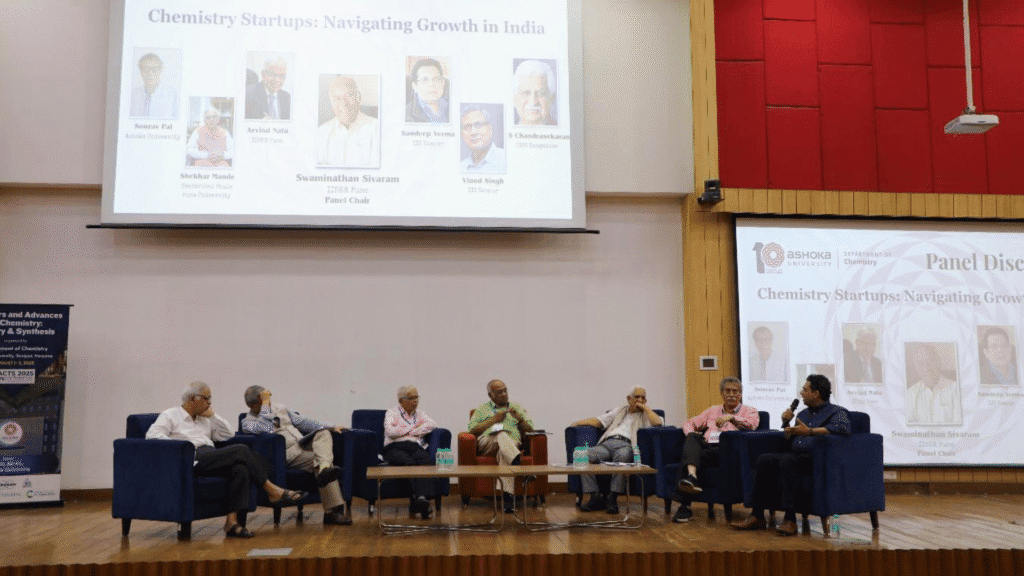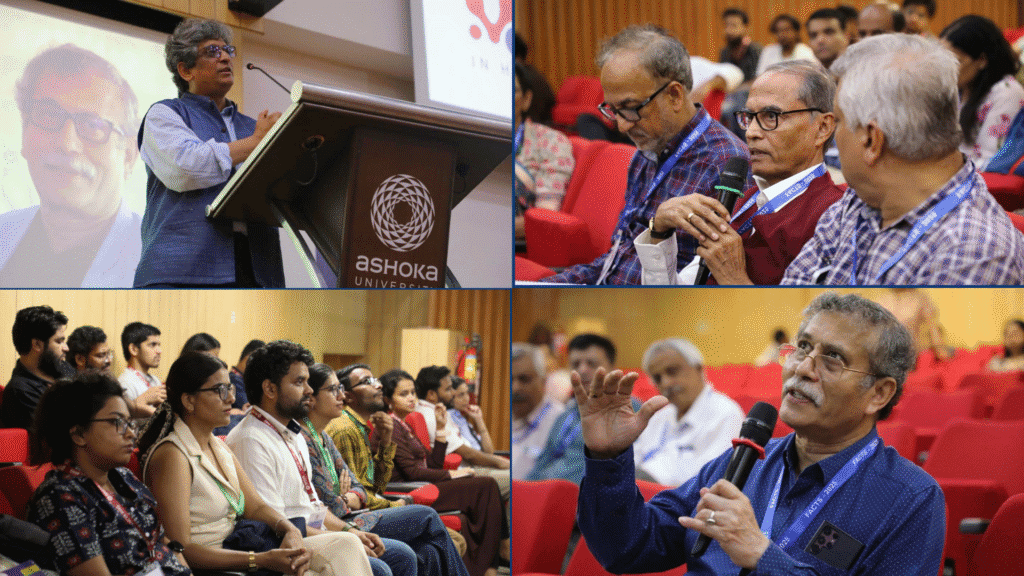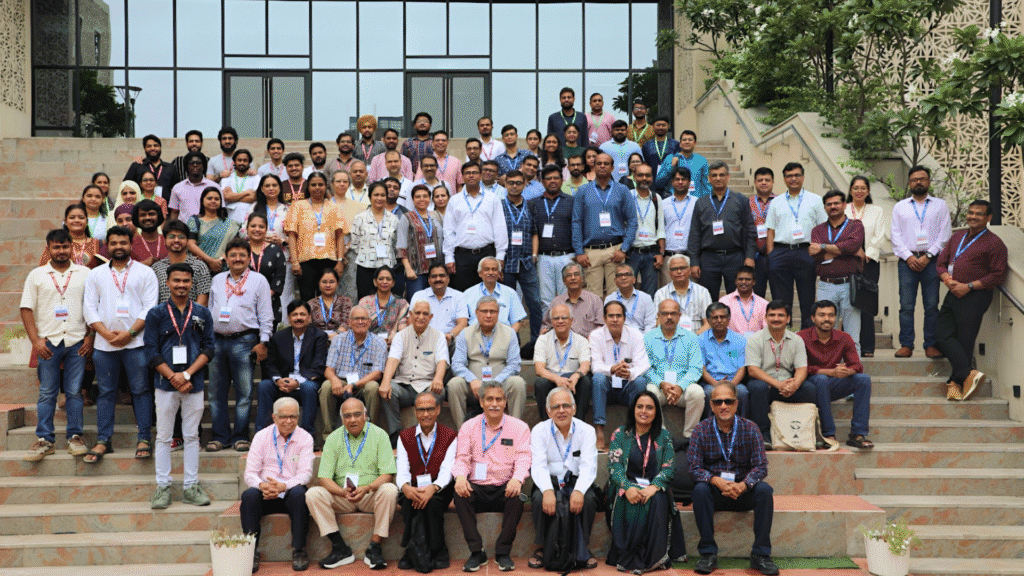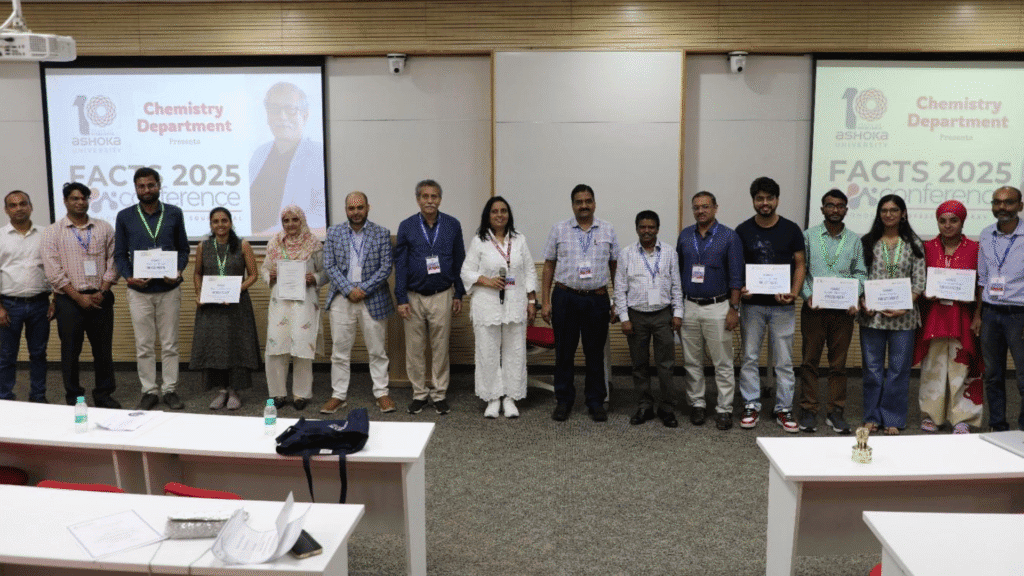FACTS 2025: Frontiers and Advances in Chemistry
Ashoka University’s Department of Chemistry hosted FACTS 2025, a three-day conference celebrating 100 years of quantum mechanics and honouring Professor Sourav Pal’s scientific legacy.
The Department of Chemistry at Ashoka University successfully organised FACTS 2025 from August 1 to 3, 2025. Convened by Professor Vidya Avasare, the conference brought together leading scientists, researchers, and academicians from across India and abroad to commemorate two significant milestones: the centennial anniversary of quantum mechanics and the scientific legacy of Professor Sourav Pal.
FACTS 2025 witnessed participation from over forty universities and research institutions, including three distinguished faculty members from abroad. Over three intellectually stimulating days, the conference featured eleven plenary lectures and fifty invited talks, all delivered by stalwarts in the chemical sciences from premier institutions such as IISc Bengaluru, IITs, IISERs, TIFR, and international universities. These sessions, chaired and moderated by around thirty-five senior scientists, enabled vibrant exchanges of ideas, critical discussions, and collaborative exploration of emerging trends in chemistry.

A particular highlight of the meeting was the impressive lineup of eminent speakers who delivered plenary and invited lectures. Among them were Professor N. Sathyamurthy, Professor E.D. Jemmis, Professor Biman Bagchi, Professor Krishnan Raghavachari, Professor S. Chandrasekaran (IISc Bengaluru), Professor Arvind Natu (IISER Pune), Professor Sandeep Verma (IIT Kanpur), Professor Vinod Singh (IIT Kanpur), Dr. Thomas Colacot, and Dr. Diksha Gupta. Their lectures spanned frontiers of theoretical chemistry, catalysis, drug discovery, materials science, and sustainable chemistry, setting the tone for the next phase of innovation in chemical sciences.
The breadth of themes addressed in FACTS 2025 covered chemical biology, drug discovery, theoretical and computational chemistry, quantum computing, statistical mechanics, catalysis, organometallic and organic synthesis, green and sustainable chemistry, bioorganic chemistry, biophysics, and materials chemistry. This diversity fostered interdisciplinary interactions between experimental and theoretical chemists, as well as between academia and industry professionals.

One of the most anticipated sessions on the second day was the inaugural address by Professor Somak Raychaudhury, Vice Chancellor of Ashoka University. This was followed by a panel discussion on the growth of chemistry-based startups in India, chaired by Professor Swaminathan Sivaram (IISER Pune). The panel featured eminent scientists including Professor Sourav Pal (Ashoka University), Professor Shekhar Mande (Savitribai Phule Pune University), Professor Arvind Natu (IISER Pune), Professor S. Chandrasekaran (IISc Bengaluru), Professor Sandeep Verma and Professor Vinod Singh (IIT Kanpur), along with contributions from Professor N. Sathyamurthy, Professor E.D. Jemmis, Professor Biman Bagchi, Professor Krishnan Raghavachari, Dr. Thomas Colacot, and Dr. Diksha Gupta. Professor Sunil Khare also addressed the gathering, further enriching the discussion.

The panel explored pressing issues at the interface of fundamental research and entrepreneurship, focusing on how pioneering academic discoveries can be transformed into scalable, deep-tech innovations. Discussions highlighted the importance of nurturing curiosity-driven research, innovation, and sustainability in young scientists while addressing challenges of risk-taking, scaling, and navigating regulatory frameworks. A consensus emerged on embedding entrepreneurial thinking within the chemical sciences, aligning with India’s vision of building an Atmanirbhar Bharat (self-reliant India).
The poster sessions were another highlight, featuring thirty-two Ph.D. students from across India. Their presentations reflected scientific rigour and creativity, sparking meaningful exchanges with senior researchers. Nine participants were recognised with ACS and RSC Poster Awards for their outstanding contributions in scientific content and clarity of presentation.

FACTS 2025 truly embodied Professor Vidya Avasare’s vision of creating a platform for academic dialogue, interdisciplinary collaboration, and long-term partnerships in the chemical sciences. It underscored the transformative power of chemistry in addressing global challenges and building a sustainable future.
In her concluding remarks, Professor Avasare expressed heartfelt gratitude to the faculty, staff, support staff, and volunteers of the Department of Chemistry at Ashoka University, whose tireless efforts ensured the smooth execution and success of this large-scale event. She also acknowledged the generous support of the sponsors, Axis Bank, ANRF, IISER Kolkata, RSC, ACS, and Bruker, whose contributions were instrumental in making FACTS 2025 a truly impactful and memorable scientific gathering.
Study at Ashoka












